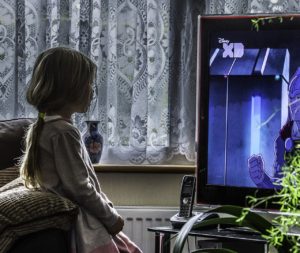 There are many abnormalities and health conditions that are difficult to detect in children.
There are many abnormalities and health conditions that are difficult to detect in children.
In many cases, these conditions do not manifest or appear to have an effect on the child’s well being, or the children might not have developed the ability to communicate these conditions.
They might remain in the shadows until the child becomes a little older and begin to show signs of discomfort as a result.
Vision problems fall into the category of conditions that may affect your child but might be extremely difficult to detect.
 An undetected vision problem will definitely begin to have a negative impact on your child’s performance at both home and school.
An undetected vision problem will definitely begin to have a negative impact on your child’s performance at both home and school.
Therefore, having a good understanding of eye health helps because you will have the information and knowledge needed to recognize the signs and symptoms that your little one may be struggling with their vision, and may need glasses.
“The visual system in a child is still developing during the first seven to eight years of life. In some cases, glasses may be necessary to help normal visual development,” says Johns Hopkins ophthalmologist Megan Collins, M.D.
Megan Collins, M.D. adds that children need glasses for the following reasons:
- Improving vision
- Strengthening vision in a weak or amblyopic (lazy) eye
- Improving the position of their eyes (crossed eyes or misaligned eyes)
- Providing protection if they have poor vision in one eye
What Are The Signs To Look For?
If you are worried that your child may have vision problems, there are several signs that you need to be on the lookout for:
Squinting
 Squinting may be a sign to consider because it can be as a result of a refractive error, which negatively impacts how well your child focuses on objects or images.
Squinting may be a sign to consider because it can be as a result of a refractive error, which negatively impacts how well your child focuses on objects or images.
Your child squints in order to be able to achieve a better focus and clarity of an image or object.
Covering one eye or Tilting the head
 If your child tilts their head or covers one eye, it may be a sign that he or she is trying to adjust their angle of vision in a bid to improve the quality of an object.
If your child tilts their head or covers one eye, it may be a sign that he or she is trying to adjust their angle of vision in a bid to improve the quality of an object.
This could be a sign that your child may have misaligned eyes or amblyopia, or lazy eye as it is commonly called. It is also one of the most common types of vision disorders in children.
Holding handheld devices too close or sitting close to the television
 While this may not always be as a result of a vision problem, it can provide you with a basis to probe further.
While this may not always be as a result of a vision problem, it can provide you with a basis to probe further.
You may also notice your child lowering their heads usually close to their books while reading – this could be a sign that there is an underlying vision problem that needs to be checked.
This may be a symptom of myopia or nearsightedness. Bringing an object closer will make it clearer.
Eye Rubbing
 When your child rubs their eyes excessively, it could be a sign that they are experiencing eye strain or fatigue.
When your child rubs their eyes excessively, it could be a sign that they are experiencing eye strain or fatigue.
There are many eye conditions that manifest through this symptom, including conjunctivitis.
Frequent headaches and eye pain
 If your child complains a lot about headaches and eye pain mostly at the end of the day, he or she may have spent a long time overexerting the eyes in a bid to have better clarity and increase the focus of their blurred vision.
If your child complains a lot about headaches and eye pain mostly at the end of the day, he or she may have spent a long time overexerting the eyes in a bid to have better clarity and increase the focus of their blurred vision.
Lack of concentration on school work
 Children will struggle with concentrating in classrooms if they are unable to have a clear vision of the chalkboard, especially if they are not close to the object or image on computers and textbooks.
Children will struggle with concentrating in classrooms if they are unable to have a clear vision of the chalkboard, especially if they are not close to the object or image on computers and textbooks.
This may ultimately present itself as a lack of concentration on their schoolwork.
This requires close monitoring to detect.

